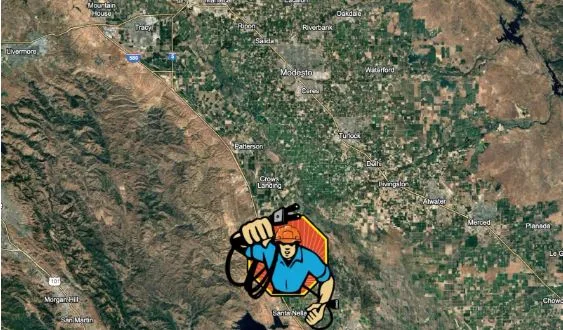You Were the One Hurt So Why Are They Treating You Like It’s Your Fault?
When you’re injured in a motorcycle accident, the last thing you expect is to be treated like the perpetrator rather than the victim. You’re in pain, dealing with medical bills, lost work, and the emotional toll of trauma, and yet somehow, the spotlight shifts to scrutinizing your actions. It’s frustrating, unfair, and can even threaten your chances of receiving the compensation you rightly deserve.
So why does this happen, and what can you do about it?
The Bias Against Motorcycle Riders
Why Bikers Are Often Blamed
There’s a deeply rooted bias in how motorcyclists are viewed by society, insurers, and sometimes even law enforcement. Popular culture has long portrayed bikers as reckless daredevils, and this stereotype bleeds into how motorcycle accidents are investigated. Even when a motorcyclist follows every rule, some people automatically assume they were at fault.
Insurance companies often seize this opportunity to shift blame. Why? Because if they can pin partial or full responsibility on the motorcyclist, they can reduce or even deny your injury claim.
How This Affects Injury Claims
Most states follow a comparative negligence rule, and in Connecticut, if you’re found to be 51% or more at fault, you can’t recover damages at all. This makes it incredibly important to push back against incorrect assumptions or misleading narratives early in your case.
Even being assigned 20–30% fault can reduce your settlement significantly. When it’s your future on the line, fighting for the truth matters.
What to Do When You’re Being Blamed
Stay Calm, Document Everything
If you’re physically able after an accident, take photos of the scene, your injuries, and any damage to your motorcycle. Get the names and contact details of witnesses and make sure a police report is filed. Even if it feels like the system is against you, documentation helps level the playing field.
Medical documentation is also crucial. Follow up with your doctor and don’t skip appointments. Consistent treatment builds a strong foundation for your injury claim.
Be Careful What You Say
Insurers may contact you quickly after the crash. Be cautious: what you say can be used against you later. Even casual comments like “I didn’t see them coming” or “I’m not sure whose fault it was” may be twisted into admissions of guilt.
Never give a recorded statement to an insurance company without legal guidance. These statements are often structured to coax you into minimizing your injuries or accepting blame.
How Legal Representation Helps Shift the Narrative
Leveling the Playing Field
When you’re wrongly blamed for an accident, having an attorney means having someone to investigate on your behalf. They can obtain surveillance footage, accident reconstructions, and expert testimony that prove what happened.
An experienced motorcycle accident attorney knows the tricks insurers use and how to counter them with facts and strategy. This advocacy can make the difference between an unfair denial and a fair settlement.
Protecting Your Rights After the Crash
Navigating a personal injury claim alone is difficult, especially when you’re injured and vulnerable. That’s why consulting a legal professional is a crucial step. Not only do they handle communication with insurers, but they also ensure deadlines are met, evidence is preserved, and your story is accurately told.
You can learn more about the legal role of a personal injury attorney here.
The Emotional Toll of Being Blamed
Psychological Impact of Unjust Accusations
Being accused of causing your injuries adds emotional injury to physical harm. Guilt, anger, confusion, and shame are common feelings, especially when your character is unfairly questioned. This can hinder your healing process and make it harder to focus on recovery.
It’s essential to acknowledge these feelings. You’re not alone, and it’s okay to seek support, whether from a mental health professional or from a support group of others who’ve been through similar experiences.
Don’t Let Them Rewrite Your Story
Insurance companies and defense attorneys may try to portray you as reckless or inattentive, but they don’t get to define your truth. Your actions, your suffering, and your rights matter. With the right help, you can fight back against this false narrative and reclaim your voice in the process.
Proving Fault: What Really Matters
Gathering Evidence
A successful injury claim depends on the strength of your evidence. This includes:
- Police reports
- Medical records
- Eyewitness statements
- Photos or videos of the accident
- Expert opinions (such as accident reconstructionists)
Sometimes the smallest detail can flip a case. For example, the angle of damage on your bike or skid marks on the road may prove you had the right of way, not the other driver.
Challenging Insurance Company Tactics
Insurance adjusters may attempt to:
- Claim you were speeding or lane-splitting
- Argue you weren’t wearing proper gear
- Suggest your injuries were pre-existing
An attorney can push back on these tactics by showing how they’re irrelevant, unsupported, or outright false. For instance, even if you weren’t wearing a helmet, that doesn’t make someone else less at fault for causing a crash.
When to Contact a Lawyer
If you’re being blamed for an accident that wasn’t your fault, it’s time to seek legal help. The sooner you get representation, the more time your lawyer has to build a strong case, preserve evidence, and push back against insurer narratives.
Choosing someone who understands the specific challenges faced by motorcyclists makes a big difference. Connecticut motorcycle accident lawyers offer the experience, resources, and compassion to fight for your rights and fair compensation.
You Deserve to Be Heard and Compensated
Being injured is hard enough being blamed for it makes it worse. But you’re not powerless. You deserve respect, dignity, and fair treatment, not blame or doubt. Understanding the tactics used against injured riders helps you protect yourself. With the right legal support, you can push back and demand the justice and compensation you deserve. You didn’t cause the accident, and you shouldn’t have to carry the blame. It’s time to set the record straight and make sure everyone knows the truth. Your voice matters, and with the right help, you can be heard loud and clear.





